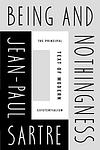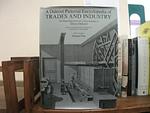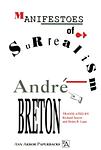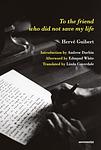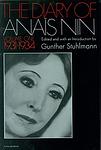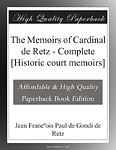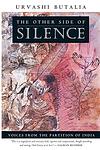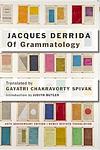The Greatest French "Nonfiction, Paris" Books of All Time
Click to learn how this list is calculated.
This list represents a comprehensive and trusted collection of the greatest books. Developed through a specialized algorithm, it brings together 305 'best of' book lists to form a definitive guide to the world's most acclaimed books. For those interested in how these books are chosen, additional details can be found on the rankings page.
Genres
The "Paris" category of books typically refers to literature that is set in or inspired by the city of Paris, France. These books often explore the city's rich history, culture, and landmarks, as well as the experiences of its inhabitants. The genre may include fiction, non-fiction, memoirs, and travelogues, and may cover a range of topics such as art, food, fashion, and romance. Overall, the "Paris" category offers readers a glimpse into the enchanting and iconic city that has captivated generations of writers and artists.
Countries
Date Range
Reading Statistics
Click the button below to see how many of these books you've read!
Download
If you're interested in downloading this list as a CSV file for use in a spreadsheet application, you can easily do so by clicking the button below. Please note that to ensure a manageable file size and faster download, the CSV will include details for only the first 500 books.
Download-
1. The Confessions of Jean-Jacques Rousseau by Jean-Jacques Rousseau
"The Confessions of Jean-Jacques Rousseau" is an autobiographical work by a prominent philosopher of the Enlightenment era, who candidly shares his life story, from his humble beginnings in Geneva to his later years in exile. The book delves into his personal struggles, his intellectual journey, and his relationships, all while exploring his philosophical ideas on education, politics, and morality. The author's introspective narrative provides a unique perspective on his life and times, making it a seminal work in the history of autobiography.
The 314th Greatest Book of All Time -
2. Pensées by Blaise Pascal
"Pensées" is a collection of philosophical and theological thoughts and ideas by a renowned French mathematician and physicist. The book delves into various aspects of human existence, exploring the nature of faith, reason, and the human condition. It also presents arguments for the existence of God, including the famous wager argument. The book is known for its profound insights into the human experience and its exploration of the complexities of belief and doubt.
The 344th Greatest Book of All Time -
3. Being and Nothingness by Jean Paul Sartre
This philosophical work delves into the concept of existentialism and phenomenology, offering an in-depth analysis of human consciousness and existence. The author argues that we are all essentially free and responsible for our actions, and that we construct our own identities through our actions and interactions with others. The book also explores the idea of 'nothingness' and 'bad faith', suggesting that we often deny our freedom and hide from the responsibility of our actions, leading to a life of inauthenticity.
The 630th Greatest Book of All Time -
4. Words by Jean Paul Sartre
This book is a memoir that explores the author's early life and development as an intellectual. He reflects on his childhood experiences in a non-linear narrative, detailing his relationship with his mother and grandfather, his early education, and his evolving understanding of language and literature. The author also delves into his philosophical ideas, examining the concept of existentialism and the role of the individual in society. The book serves as a profound exploration of the power of words and the impact of childhood experiences on adult life.
The 887th Greatest Book of All Time -
5. Promise at Dawn by Romain Gary
"Promise at Dawn" is a semi-autobiographical novel that explores the life of a young man growing up in Eastern Europe, and later in France, under the shadow of his ambitious and eccentric mother. The protagonist's journey takes him through various phases of his life from his childhood, through his experiences as a pilot in World War II, to his adult life as a diplomat and a writer. The story is a tribute to the protagonist's mother, who instilled in him the values of courage, resilience, and the pursuit of grandeur, even in the face of adversity.
The 1239th Greatest Book of All Time -
6. Rameau's Nephew by Denis Diderot
"Rameau's Nephew" is a philosophical dialogue that explores themes of morality, societal norms, and the nature of genius. The story revolves around a conversation between a philosopher and a character who is the nephew of a famous musician. The nephew, a freeloader and a parasite, defends his lifestyle by arguing that it is not only acceptable but also necessary in a society where wealth and power determine value. The dialogue delves into the contradictions and ironies of social conventions, challenging traditional notions of virtue, vice, and human nature.
The 1643rd Greatest Book of All Time -
7. Encyclopédie by Denis Diderot
This comprehensive work is a pioneering encyclopedia that aimed to present all the world's knowledge in a systematic and accessible way. It covers a wide range of topics including arts, sciences, crafts, professions, and technology. The book is also notable for its radical and enlightenment ideas, challenging traditional institutions and advocating for freedom of thought. It played a significant role in shaping the intellectual landscape of the 18th century and beyond.
The 1814th Greatest Book of All Time -
8. Surrealist Manifesto by André Breton
The Surrealist Manifesto is a groundbreaking work that introduces and defines the surrealist movement in literature and art. The book, written by the founder of the movement, presents the idea that the rational mind represses the power of the imagination, weighting it down with taboos. It argues that the world of dreams and the unconscious should be embraced to enhance creativity, leading to more complete and fulfilling human experience. The book also criticizes traditional societal structures and norms, advocating for revolution and freedom of thought.
The 2018th Greatest Book of All Time -
9. To The Friend Who Did Not Save My Life by Hervé Guibert
The book is a candid and harrowing autobiographical novel that chronicles the life of a man grappling with the devastating impact of AIDS during the early years of the epidemic. Through a blend of fact and fiction, the narrative delves into the protagonist's personal experiences with illness, the medical establishment, and the emotional complexities of friendship and mortality. As he confronts his own declining health, the protagonist reflects on the relationships with those around him, including a close friend who is also facing the disease, and the betrayal he feels when a promised miracle cure fails to materialize. The novel is a raw and poignant exploration of the human condition in the face of an unforgiving illness.
The 2356th Greatest Book of All Time -
10. The Diary of Anais Nin, 1931-1934 by Anaïs Nin
This book is a deeply personal journal of a woman's life from 1931 to 1934, providing an intimate look into her experiences, thoughts, and emotions during this period. The author explores her relationships, her struggles with her writing, and her journey of self-discovery. The diary also captures her interactions with notable personalities of the time, giving readers a unique glimpse into the cultural and social milieu of the early 20th century. Her introspective and poetic style adds a layer of depth to her observations and reflections.
The 2779th Greatest Book of All Time -
11. Memoirs of Cardinal De Retz by Cardinal de Retz
"Memoirs of Cardinal De Retz" is an autobiographical account of the life of a 17th century French clergyman who played a significant role in the Fronde, a series of civil wars in France. The book provides a detailed and insightful perspective on the political, religious, and social climate of the time. It chronicles the Cardinal's rise to power, his involvement in the civil wars, his relationship with key figures of the era, and his eventual imprisonment. The memoir is noted for its candid and often critical portrayal of the author's contemporaries.
The 3013th Greatest Book of All Time -
12. The Provincial Letters by Blaise Pascal
"The Provincial Letters" is a series of 18 letters written by a philosopher and mathematician, where he defends his friend Antoine Arnauld, an opponent of the Jesuits, who was on trial before the faculty of theology in Paris for his controversial religious works. The letters mockingly criticize the morals and ethics of Jesuits, and the casuistry they used to justify moral laxity, while also debating various philosophical and theological issues. The letters are considered a masterpiece of French prose and had a significant influence on the French language.
The 3076th Greatest Book of All Time -
13. The Painter Of Modern Life by Charles Baudelaire
"The Painter of Modern Life" is a seminal essay that explores the concept of beauty in the rapidly changing urban landscape of the 19th century. The author delves into the life and work of an artist who captures the fleeting, ephemeral experiences of modernity, arguing that the true artist must extract the eternal from the transitory. Through a series of observations and critiques, the essay celebrates the vibrancy of city life, the fashion of the day, and the character of the modern individual, while also examining the role of the artist as a detached but deeply perceptive chronicler of the contemporary world. The work is a philosophical treatise on aesthetics that has influenced both the understanding of modernism in art and the broader cultural perception of modern life.
The 3093rd Greatest Book of All Time -
14. Existentialism And Humanism by Jean Paul Sartre
The book is a philosophical work that presents the core tenets of existentialist thought, emphasizing the individual's unique position as a self-determining agent responsible for the authenticity of their choices and actions. It argues that human existence precedes essence, meaning that people first exist without predetermined purpose and must then define themselves through their decisions and commitments. The text also addresses the implications of this freedom, including the weight of responsibility it places on individuals and the consequent anxiety, as well as the absence of a universal moral code. It concludes with a discussion on the role of human solidarity and the ethical considerations that arise from our interconnectedness with others.
The 3279th Greatest Book of All Time -
15. Madame Curie - A Biography by Eve Curie by Eve Curie
This biography provides an intimate and detailed account of the life of the renowned scientist, Madame Curie, who won the Nobel Prize twice for her groundbreaking work in Physics and Chemistry. It is written by her daughter, who offers a unique perspective on her mother's personal life, her struggles, her perseverance, and her monumental scientific achievements. The book also sheds light on Madame Curie's relationship with her husband Pierre, her life as a mother, and her role as a female pioneer in the male-dominated field of science.
The 3791st Greatest Book of All Time -
16. Black Skin, White Masks by Frantz Fanon
The book explores the complex effects of colonialism on the identities and psyches of black people. It delves into the psychological and social impacts of racism, analyzing how the internalization of colonial stereotypes leads to a fractured sense of self among the colonized. The author argues that black people are forced to wear "white masks" to navigate a world dominated by white values and expectations, leading to significant psychological distress and identity conflicts. The work is a critical examination of race, identity, and the lingering effects of colonial oppression.
The 4688th Greatest Book of All Time -
17. The Course in Positive Philosophy by Auguste Comte
"The Course in Positive Philosophy" is a philosophical work that introduces and elaborates on the concept of positivism, a belief system that emphasizes empirical science and factual knowledge. The author argues that society has passed through three stages: theological, metaphysical, and positive, with the positive stage being the most advanced and accurate. He asserts that all knowledge must come from observable phenomena and scientific inquiry, rejecting metaphysics and theology. The book is a cornerstone of modern sociology and philosophy, influencing many later thinkers.
The 4688th Greatest Book of All Time -
18. The Voices Of Silence by Andre Malraux
"The Voices of Silence" is a profound exploration of the psychology, philosophy, and history of art and aesthetics. The work delves into the relationship between art and the human condition, examining how art has evolved and how it reflects the spiritual and intellectual developments of different cultures. It discusses the role of the artist in society and the transformative power of art, considering the ways in which art communicates beyond language and the silence of eternity. The book is both a meditation on the nature of artistic creation and a sweeping survey of world art, from the prehistoric to the modern era, offering insights into the enduring quest for meaning and beauty through artistic expression.
The 5277th Greatest Book of All Time -
19. Of Grammatology by Jacques Derrida
The book is a foundational text in the field of deconstruction, challenging traditional assumptions about the relationship between speech and writing. The author argues that Western thought has consistently privileged speech over writing, mistakenly regarding speech as a more direct expression of thought. Through a detailed critique of Saussurean linguistics, as well as the works of philosophers such as Rousseau, Nietzsche, and Levi-Strauss, the text exposes and deconstructs this bias, proposing that writing actually precedes and structures speech. This radical reevaluation has profound implications for philosophy, linguistics, and critical theory, suggesting that all texts are inherently unstable and their meanings undecidable.
The 5517th Greatest Book of All Time -
20. The Society Of The Spectacle by Guy Debord
"The Society of the Spectacle" is a critical philosophical treatise that explores the ways in which modern society is dominated by the commodification of social life and the pervasive influence of mass media. The author argues that authentic social interactions have been replaced by mere representations and appearances, facilitated by an array of spectacles—events, images, and media that serve to maintain the status quo by promoting passive recognition and consumption rather than active participation. This work delves into the consequences of living in a society where everything that was directly lived has moved away into a representation, examining the implications for individual autonomy and social change.
The 5517th Greatest Book of All Time -
21. War Diaries by Jean Paul Sartre
"War Diaries" is a collection of personal notebooks kept by the philosopher during the early years of World War II, specifically from 1939 to 1940. These diaries provide a unique insight into his thoughts and feelings during this tumultuous period, capturing his reflections on the intellectual and social climate of the time. The entries delve into his philosophical musings, everyday challenges, and his observations on the impact of the war on French society and culture. Through these diaries, readers gain an intimate understanding of the author's development of existential ideas in response to the war's unfolding events.
The 5517th Greatest Book of All Time -
22. Renoir, My Father by Jean Renoir
"Renoir, My Father" is a captivating biography that offers an intimate glimpse into the life and work of the renowned French Impressionist painter through the eyes of his son. The book delves into the artist's personal and professional world, exploring his relationships, his struggles, and his profound influence on the art world. The narrative, rich with personal anecdotes and insights, paints a vivid portrait of a man deeply committed to his artistic vision, while also highlighting the familial bonds and the era that shaped his remarkable career. This work not only celebrates the legacy of a great painter but also provides a touching exploration of a father-son relationship.
The 5517th Greatest Book of All Time -
23. The Coming Of The French Revolution by Georges Lefebvre
"The Coming of the French Revolution" provides a detailed analysis of the social, political, and economic factors that led to the French Revolution in 1789. The book examines the roles played by various classes of society, including the peasantry, bourgeoisie, and nobility, and highlights the escalating tensions that culminated in a profound transformation of the French state. The author uses a Marxist perspective to explore the class struggles and the rise of revolutionary ideas, illustrating how these elements combined to overthrow the old regime and set the stage for modern political changes.
The 5517th Greatest Book of All Time -
24. The Films In My Life by Francois Truffaut
"The Films In My Life" is a collection of essays and reviews by a celebrated French filmmaker, offering insights into the world of cinema from the 1950s through the 1970s. In this book, the author discusses a wide range of films, from classics to lesser-known works, providing personal and critical perspectives that reflect his experiences as both a filmmaker and a film critic. The essays not only delve into the artistic and technical aspects of the films but also explore the influence of cinema on society and the individual, showcasing the author's deep love for and understanding of the medium.
The 5662nd Greatest Book of All Time -
25. The History Of Sexuality by Michel Foucault
"The History of Sexuality" explores the complex relationship between power and sexual discourse, arguing that since the 17th century, Western societies have not repressed sexuality but rather incited it, making it an object of public discourse. The author examines how power operates through the production of knowledge about sex and uses this perspective to challenge the conventional narrative that society has been progressively liberating sexuality from repression. The book delves into the ways in which sexual norms and power relations are intertwined, suggesting that the discourse on sexuality is a tool of power used to regulate both individual bodies and entire populations.
The 5714th Greatest Book of All Time
Reading Statistics
Click the button below to see how many of these books you've read!
Download
If you're interested in downloading this list as a CSV file for use in a spreadsheet application, you can easily do so by clicking the button below. Please note that to ensure a manageable file size and faster download, the CSV will include details for only the first 500 books.
Download

